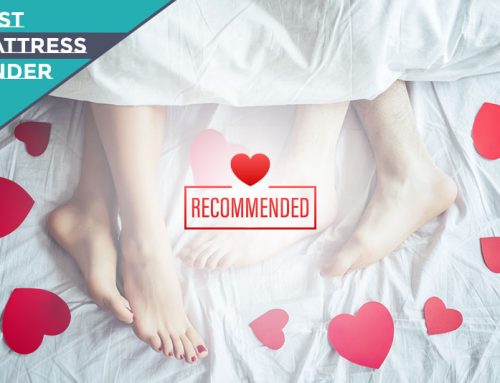How to choose the best soft mattress
Having thousands of different choices when it comes to choosing a mattress can be a tough decision. There actually dozens of thousands of choices, brands, styles, and sizes and narrowing it down to just one can be a bit daunting.

When choosing one single mattress to sleep on every night for the next few years, it’s a big decision and the seemingly infinite amount of choices can make the entire process a bit overwhelming.
Luckily, there is a lot of information online that can help steer you in the right direction.
One of the most important aspects of choosing a mattress comes down to firmness. Firmness can be directly related to comfort. If you’re looking to choose a mattress that is soft, you won’t be pleased with sleeping on extra firm beds and vice versa.
When choosing a mattress, think of soft and firm as the two extremes with soft being at one end at firm being at the other. Obviously, mattresses land everywhere in between.
It’s important to know that firmness in mattresses and support are two different things. The mattresses’ firmness will relate to the top layers of the bed and support comes in the way of the foundation of the bed and the layers in the middle. All well-fabricated mattresses will offer a pretty sound support system despite what the layers on the top might feel like. Mattresses that are classified as very soft stil have a strong support system. Support is pretty much unilateral throughout the bed industry. If people are going to be sleeping on something day in and day out for years, the support is very important to be strong and sturdy. So, when you’re choosing a mattress don’t get fogged up between the differences. Just go forward with the notion that all beds have a lot of support and all you really have to do is choose the firmness. A mattress that is very firm does not mean it has more support than soft ones. Firmness and overall softness only refers to the actual feeling of the bed.
With that said, a lot of people prefer to sleep on mattresses that are very soft. There’s no right answer or wrong answer when it comes to firmness, it’s all about personal preference and subjectivity.
Sleeping comfortably usually depends on your sleeping habits which is directly related to your spinal alignment. When you stand for example, your spine is naturally supported as a result of your posture. When you’re laying down while you’re awake, your muscles are still active and it provides support. But, when you fall asleep, the body relies on its surface to keep that same alignment. Which means, your bed is a crucial part when it comes to keeping your spine aligned. If you’re sleeping on something that is too soft, or vice versa, depending on your preference, you could wake up in pain or with aches in your neck, shoulders, and backs.
And nobody wants to start their day off in pain.
When we lay on our backs, they aren’t straight. There’s a natural curve so while you’re sleeping, having support is integral to alleviating pressure points. It’s for those reasons that many sleepers prefer to have extra firmness. A lot of people like a hard feeling to help keep their spine aligned and they’ll notice less pressure on their neck, back, and shoulders in the morning.
[amazon box="B012H0K93I"]
[amazon box="B01IU6RQW0"]
[amazon box="B010GIED6C"]
[amazon box="B016WJWC5I"]
[amazon box="B074NDPZT5"]
It’s a common misconception to think that soft mattresses are what result in the most comfortable sleeps. For a lot of people, the harder the mattress, the better the sleep.
The way you sleep is a big part of choosing how soft you want your mattress. People who sleep on their backs for example, might prefer a bed that is extra soft because it helps to keep their back protected and it eases their body into the mattress.
Side sleepers will generally opt for a softer feel because it alleviates pressure points on their shoulders and hips. People who sleep on their backs will have the most range in choosing a firmness, mostly because the back is a much sturdier muscle than your obliques, hips, or rib cage.
Soft mattresses are also good choices for sleepers who tend to be a bit lighter. Heavier sleepers might have the tendency to sink more into their mattress if they’re sleeping on soft beds and light sleepers might feel their pushed to the top of a hard bed. Generally, the lower you are on the BMI (body mass index), the softer you’ll want your mattress to be.
Sleepers who are opting to choose the best soft mattress might want to consider taking the memory foam route. Memory foam consists of compounds and technology that help to contour people’s bodies which makes for a feeling that the mattress is hugging your body. A lot of contemporary memory foam mattresses are made out of polyurethane (both naturally and chemically) and consist of foam bubbles that are good at creating air flow and makes for a texture that tends to hold its place for a few seconds before returning to form. Memory foam mattresses are very popular with people who are choosing a soft sleep over a hard one.
They tend to be a little bit more expensive but are traditionally very positive for soft sleepers.
In the end, if you find yourself waking up with sore aches and muscles, you might be sleeping on a mattress that is too hard. Soft mattresses will help to keep your body supported but they ease the pressure on your body’s joints.
Potential bed-buyers should do a good amount of research and take in a bunch of different firmness levels before making a decision. But for sleepers who are keen on choosing an extra soft mattress, you should give some serious consideration to memory foams and hybrid beds while staying away from stiff innerspring coil mattresses and latex beds. Nothing can beat the feeling of diving into a bed that is soft and reminds you of sleeping on a cloud. If you want to sleep like an angel, give some serious consideration to choosing a very soft mattress.





